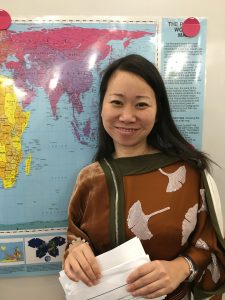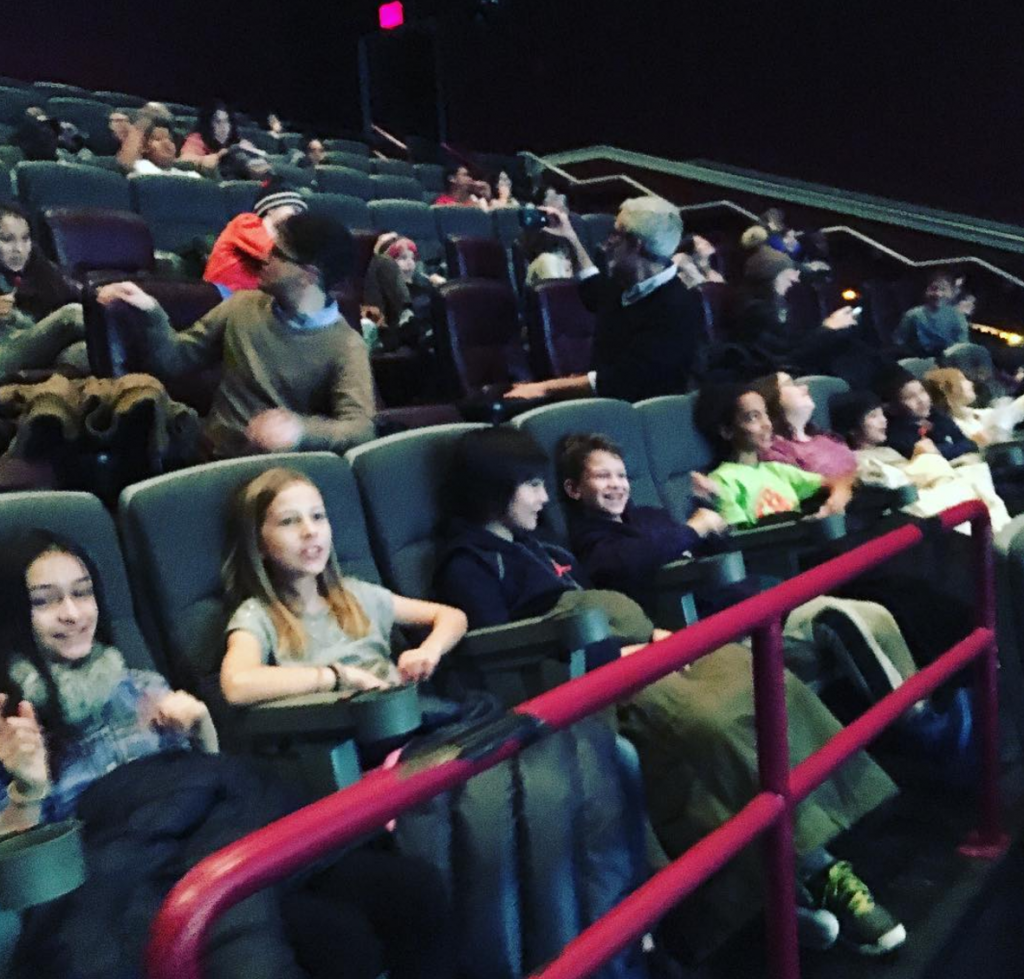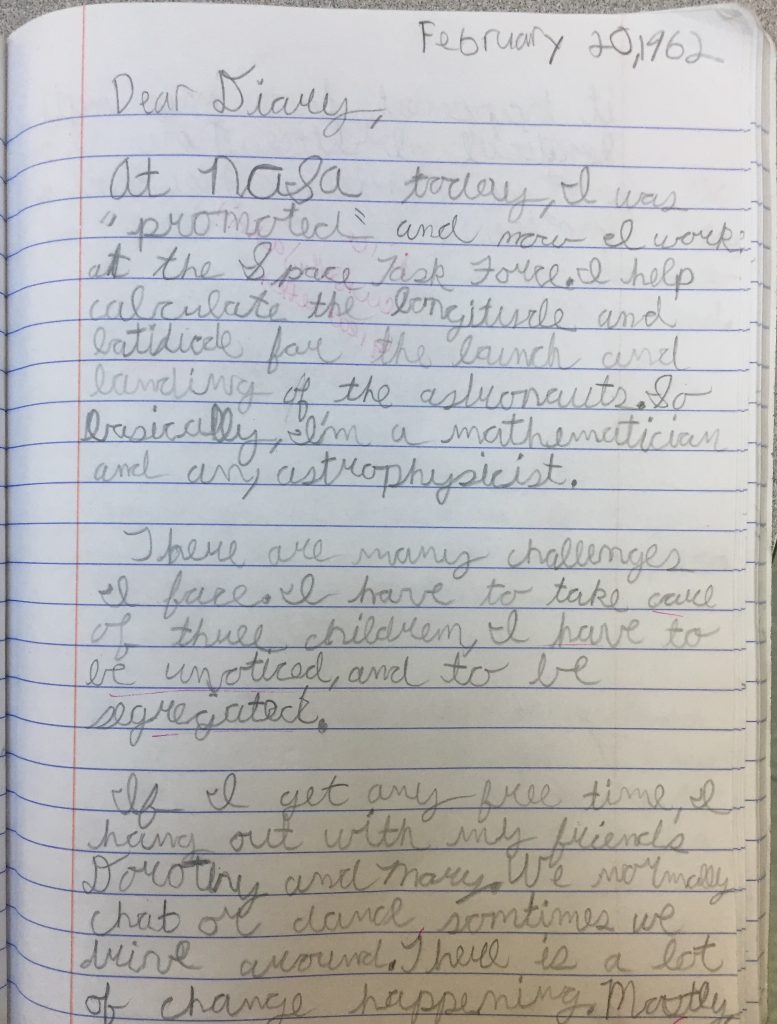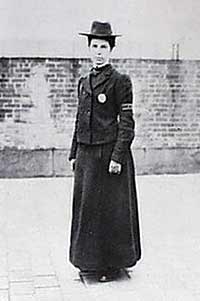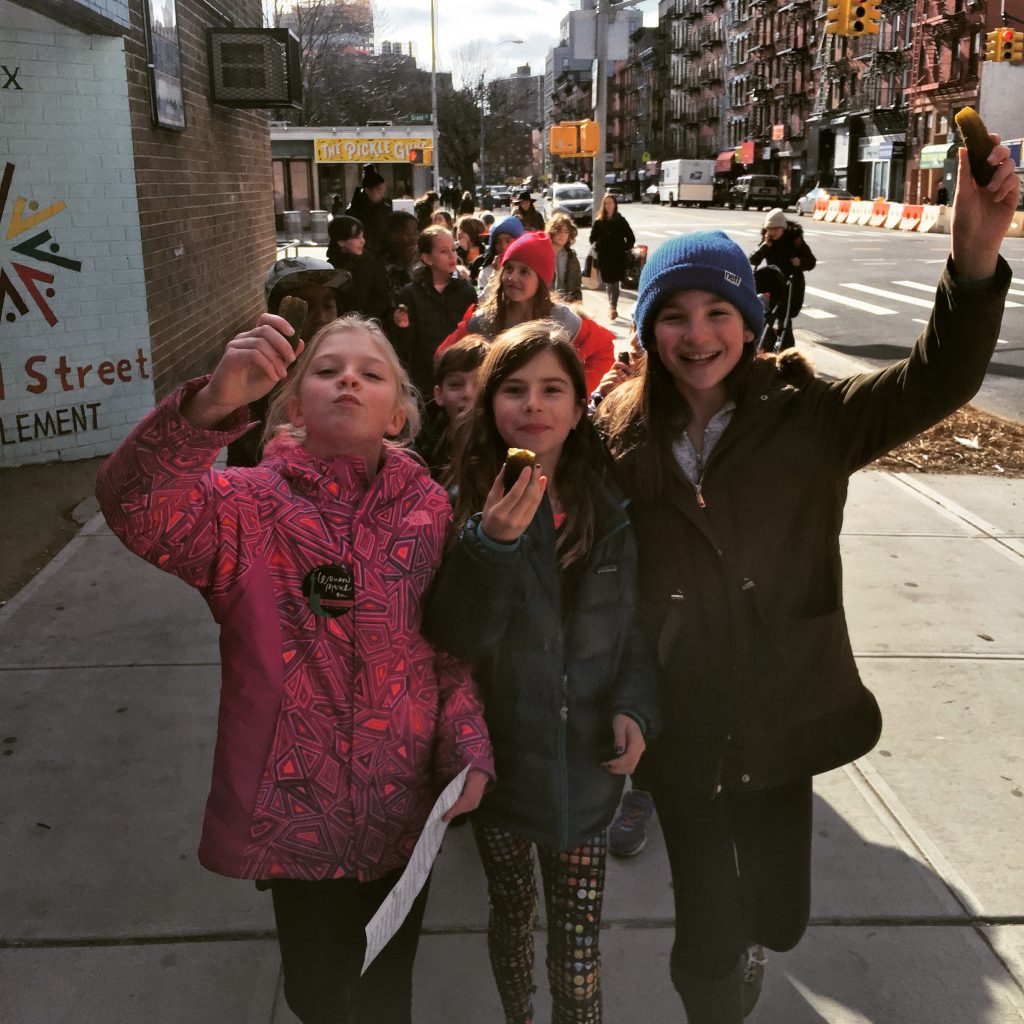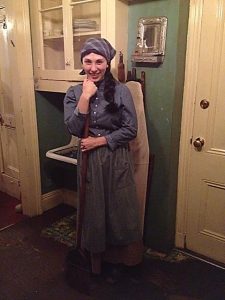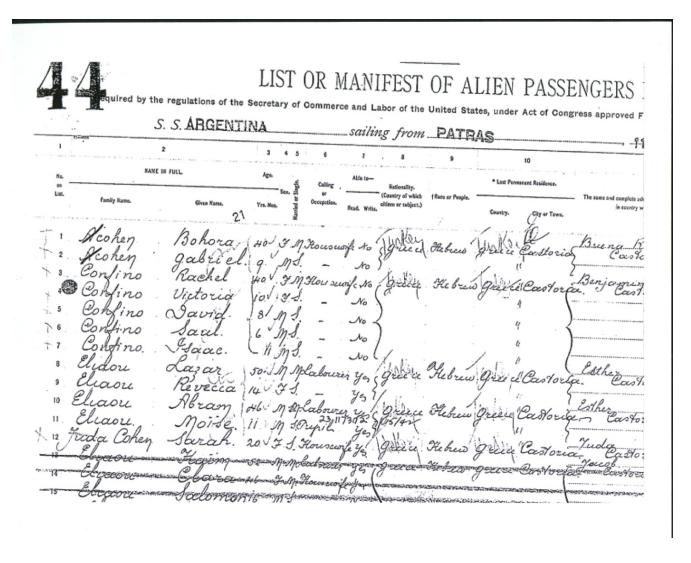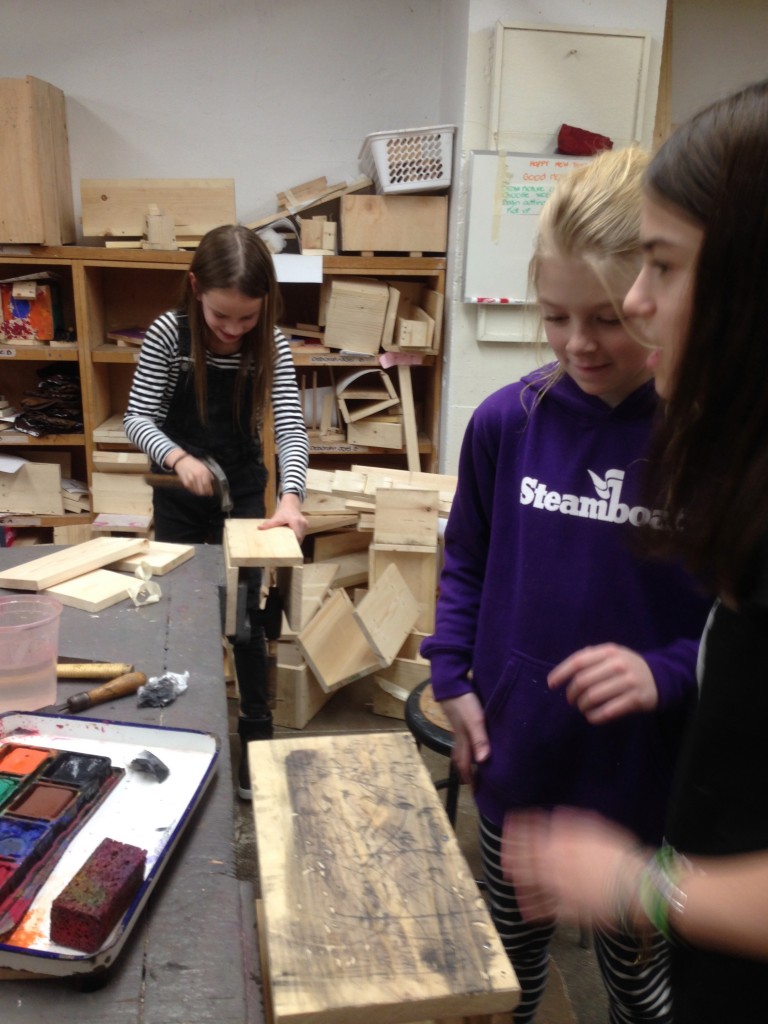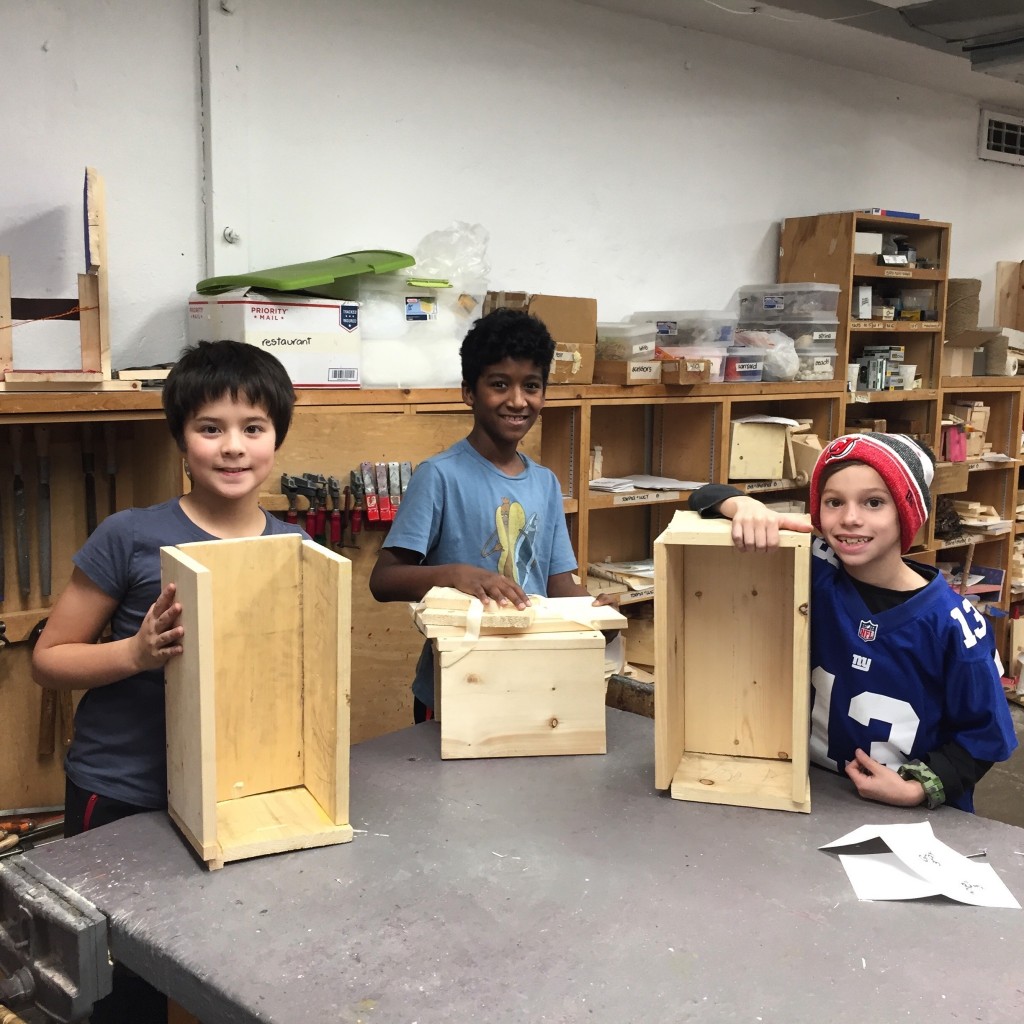NYC-On December 1st 2016, one of the LREI spanish teachers, Lizbeth came to the fourth grade to talk about when she came to America, and how she just became an American citizen and how it was her first time voting.
Lizbeth is originally from Lima ,Peru and moved to the U.S. in 2004. When she left Peru with one of her daughters she had a hard time traveling and taking all her things from her house to the U.S., it took her about two years. She hadn’t had a notarized document saying her husband knew she was taking their daughter out of the country. In the end she got on the plane but it wasn’t easy.
When Lizbeth finally got to America her husband took her to his favorite diner called John’s. Of course Lizbeth was new to America and had all these questions like…… What is a diner? What is a pancake? Lizbeth’s husband knew she loved to eat, so he ordered a 12 oz cheeseburger with cheese fries and it’s been her favorite thing to get there ever since.
In 2016 when Lizbeth decided to become an American citizen she had to get her picture taken and scan her fingerprints and she also had to answer 10 questions out of a 100, she got a packet with 100 questions so she could figure it out before the test. When she got asked the questions she got all of them right. The questions were something like “What do the American citizens celebrate on July Fourth?”
She had to give her Peruvian passport to become an American citizen. Lizbeth got a little teary but now she was able to vote. Lizbeth loves to cook new recipes, drive her children to different places and loves dancing with her family and even her dog dances too. Everyday she celebrates that she is in America!
Her daughter was 1 years old when they left Peru. Lizbeth was sad that she was leaving her family and she’d have to give up her Peru passport. When she got to the US she lived in Queens. She didn’t know many words but a couple words like potato, tomato and hello. The other words she spoke were in Spanish. When she came to the US it was hard to find a job but she found one at LREI.
She lived with her husband and he taught her about New York City. Like a diner that had pancakes, eggs and cereal and big, juicy burgers and cheesy fries. He taught her how to speak English and get used to her new home. She has lived there ever since feeling bittersweet about being in America and not being in Peru.
Transcript for the visit:
Lorenzo: Why didn’t you take your whole family with you? Too much money?
Lizbeth: My husband’s mom and her family came here illegally and crossed the border, and I didn’t want to have that experience. It took me two years to get over here because we wanted to do it lawfully.
Lizbeth: “Green cards have an expiration date. When that date comes close, you have to make a decision to either renew it or become a citizen. Do I want to become a citizen or stay a permanent resident? I saw the elections coming up, and I had to make a decision, do I want to give up my Peruvian nationality? It was a very hard decision.”
Lizbeth: “When I decided, I filled out the application, submitted it, waited for months, had to give fingerprints, a picture taken, and a background check. Then they gave me a packet and said you need to know a little bit of our history. The book had 100 questions about the USA! They said you would have ten questions and they wouldn’t’ tell you which ones they were out of 100. I was a little nervous and studied with Kenna. I was worried. I didn’t know what was going to happen if I didn’t get them all right.”
“I did get them right. So, I passed the test and became a citizen!”
Asher: “Why did this election make you feel this way more than others?”
Lizbeth: “I had been part of elections in Peru before becoming a citizen and I knew how important that was. I wanted to have a voice in your country and wanted my kids to witness that I was taking a part and being responsible for my country.”
Lorenzo: “Does the average citizen know all those answers to the questions?”
Lizbeth: “I don’t know and don’t want to generalize, but my husband knew some answers and didn’t know some others.”
Mayer: “How long did it take you to memorize all this stuff?”
Lizbeth: “I got the packet in February and studied every day. I studied on the ride to work and downloaded an app that helped me.”
Jasiri: “Why didn’t you become a citizen in 2012?”
Lizbeth: “I don’t think I was ready to give up my Peruvian nationality. I had to give up my passport at the naturalization ceremony.”
Asher: “Before this election, is there anything that made you want to become a citizen?”
Lizbeth: “I guess there are some things that you can only do when you become a citizen like voting and being part of a jury. There are some things you can only apply for if you become a citizen. But it was really hard to give up my Peruvian nationality”
Lorenzo: “I’m guessing Peru does not allow you to have two nationalities?”
Lizbeth: “They do, but I would have to go through the process of applying again, and could have dual citizenship. But it is a long process with lots of paperwork.”
Sam: “Do you still write to and talk to your family members in Peru?”
Lizbeth: “Yes, I talk to my parents almost every day. I’m so thankful for Skype and I can see them through Skype, and I can visit them and they can come visit me.”
Lorenzo: “When will you have enough money to bring you family over?”
Lizbeth: “I don’t think they want to come.”
Dan: “How did you end up in Queens?”
Lizbeth: “My husband lived in Queens and emigrated here when he was three. His family lived in Jackson Heights and we lived with his family. Once we could afford our own place we decided to stay in the neighborhood because I fell in love with it; it felt a little like home. I now live close to a Peruvian restaurant that tastes like my mom’s cooking!
“What was it like bringing your daughter and moving here?”
Lizbeth: “Well, we didn’t realize we needed a piece of paper that had a notarized signature that said my husband knew I was taking our daughter out of the country. We had to get a new flight and new papers! I had my daughter, all my things, I spoke very little English, and it was really an adventure. I was practicing English on the plane, how to say Hello and I had a dollar with me so I could call someone on the phone.”
“When could you specifically speak English?”
Lizbeth: “I practiced a lot, I read a lot, I love to read, I checked out kids books from the library, I listened to lots of music in English. I would take the train even if I got lost so I could be independent. From the moment I arrived I worked really hard because I couldn’t afford to take a class. I would say two years.”
Lorenzo: “So, 2006.”
Mayer: “What’s your favorite food in Peru and what’s your favorite food here?”
Lizbeth: “That’s hard! Ceviche, fried calamari, it always comes with ceviche. Every time I go to Peru, I go to this place I went when I was little that still sells the best ceviche in the entire world. I love this dish that has beans with beef stew that is so good, but I can’t find it here!
CC: What reminds you most of Peru here?
Lizbeth: “I live in a neighborhood with a lot of Spanish speaking people: lots of Colombians, Ecuadorians, some Peruvians. I like walking down the street and hearing people speak in Spanish or hearing traditional Peruvian music.”
Wyeth: “How did you meet your husband?”
Lizbeth: “Good question! We met when we were 15 years old. He had just gotten his citizenship and his mom decided it was time for him to go back to Peru, as he is Peruvian. What we didn’t know is that our families grew up together in the same neighborhood. My cousin was having her quinceañera and our family invited him over because they wanted to welcome him back, and that’s how we met! There!”
Lily: “What is a quinceañera?”
Lizbeth: “In Spanish speaking countries, we don’t celebrate the sweet 16, we celebrate the 15th birthday.”
Dan: “What’s the first time you ate something and thought, ‘This is American!’?”
Lizbeth: “When I first came, I couldn’t believe how cold it was. It’s not that cold in Peru. My husband told me I needed to bundle up. But as soon as we stepped out of the airport and into the car, it was so freezing cold and it hit me. So that day my husband said I want to take you to my favorite diner. And he said you can have pancakes! Or cereal! What? In Peru there is no pancakes or cereal. Just kinds of oatmeal. He took me to the diner and he showed me the big menu, and I saw hamburger. I asked is that like hamburguesa? So he ordered a bacon cheeseburger deluxe with a 12 ounce patty, and he knew I love cheese so he asked for cheese fries. I remember them bringing the plate and looking at it and I thought, this is very different! This is not my rice and beans with breaded chicken on top like my mom used to make. It’s my favorite thing still! We still go to that diner and I order a bacon cheeseburger deluxe with cheese fries! The diner is called Johns. If you ever want to go to Queens in Jackson Heights and it’s an amazing neighborhood.”
What did your baby eat at the diner?
Lizbeth: “Good question. She had a little bit of pancake and she loved it.”
CC: What’s the common or traditional dance in Peru?
Lizbeth: “Peru has the coast, countryside and jungle. THere’s one traditional dance in each. Coast is the marinara, in the country is the yaeno or the wayana, and in the jungle it’s the chibi dance.”
Laiali: “Where in Peru did you live?”
Lizbeth: “I lived in Callao, which is one of the districts of Lima.”
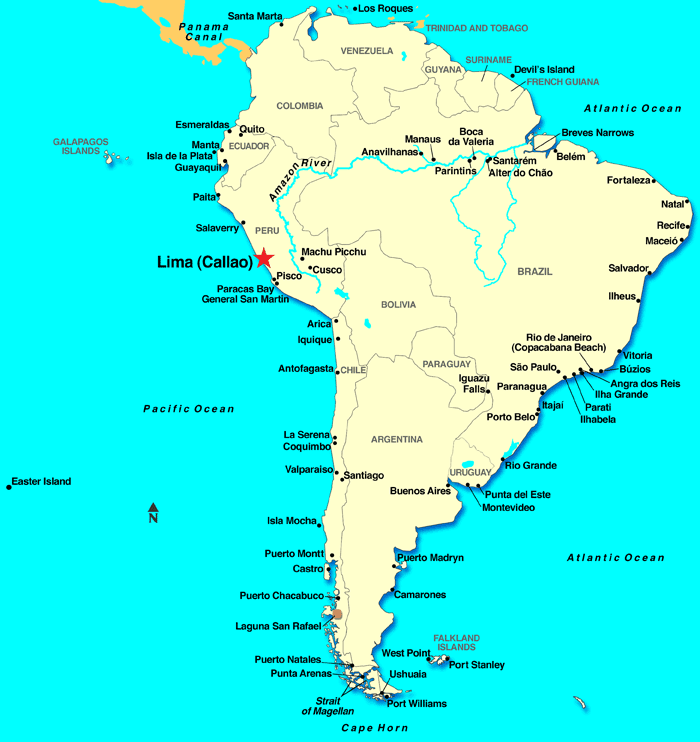
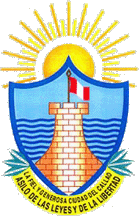
Bailey: “What was it like growing up in Peru compared to here?”
Lizbeth: “My daughter asks me that question. I can see the opportunities that she has here, and I say I can give you a better future here.”
Asher: “What’s your favorite activity besides going to the restaurant?”
Lizbeth: “On a day off when I don’t have to come to work, I love driving and to take my kids to new places, and I love photography so I take my camera with me and take pictures of everything. I love dancing, so I put on salsa and merengue music and everybody dances, even our dog! I love cooking and baking, so if there is a new recipe I like to try it.”
Lorenzo: “How did you end up working at LREI?”
My husband’s aunt was the caregiver for a family here, and she heard that they were looking for a coverage person because the current coverage person had to leave. They needed someone to cover lunch and rest in Kindergarten. Only two hours a week. I needed the money and met with a person named Delia and Meghan Dunphy, and that was my very first interview in English, pure English. I came on November 19, in 2005 and started working here November 21, 2005. I have been working here since then!”

